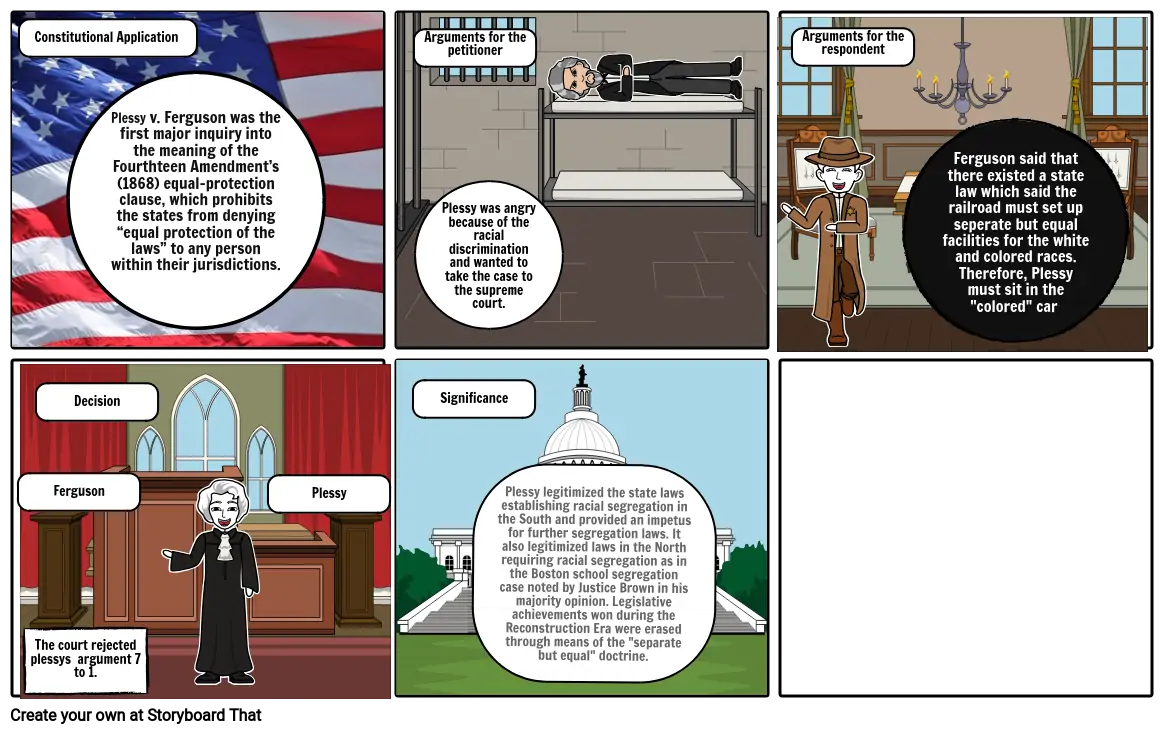plessy v ferguson 2

Storyboard Text
- Constitutional Application
- Plessy v. Ferguson was the first major inquiry into the meaning of the Fourthteen Amendment’s (1868) equal-protection clause, which prohibits the states from denying “equal protection of the laws” to any person within their jurisdictions.
- Arguments for the petitioner
- Plessy was angry because of the racial discrimination and wanted to take the case to the supreme court.
- Arguments for the respondent
- Ferguson said that there existed a state law which said the railroad must set up seperate but equal facilities for the white and colored races. Therefore, Plessy must sit in the "colored" car
- Ferguson
- The court rejected plessys argument 7 to 1.
- Decision
- Plessy
- Significance
- Plessy legitimized the state laws establishing racial segregation in the South and provided an impetus for further segregation laws. It also legitimized laws in the North requiring racial segregation as in the Boston school segregation case noted by Justice Brown in his majority opinion. Legislative achievements won during the Reconstruction Era were erased through means of the "separate but equal" doctrine.
Over 30 Million Storyboards Created

